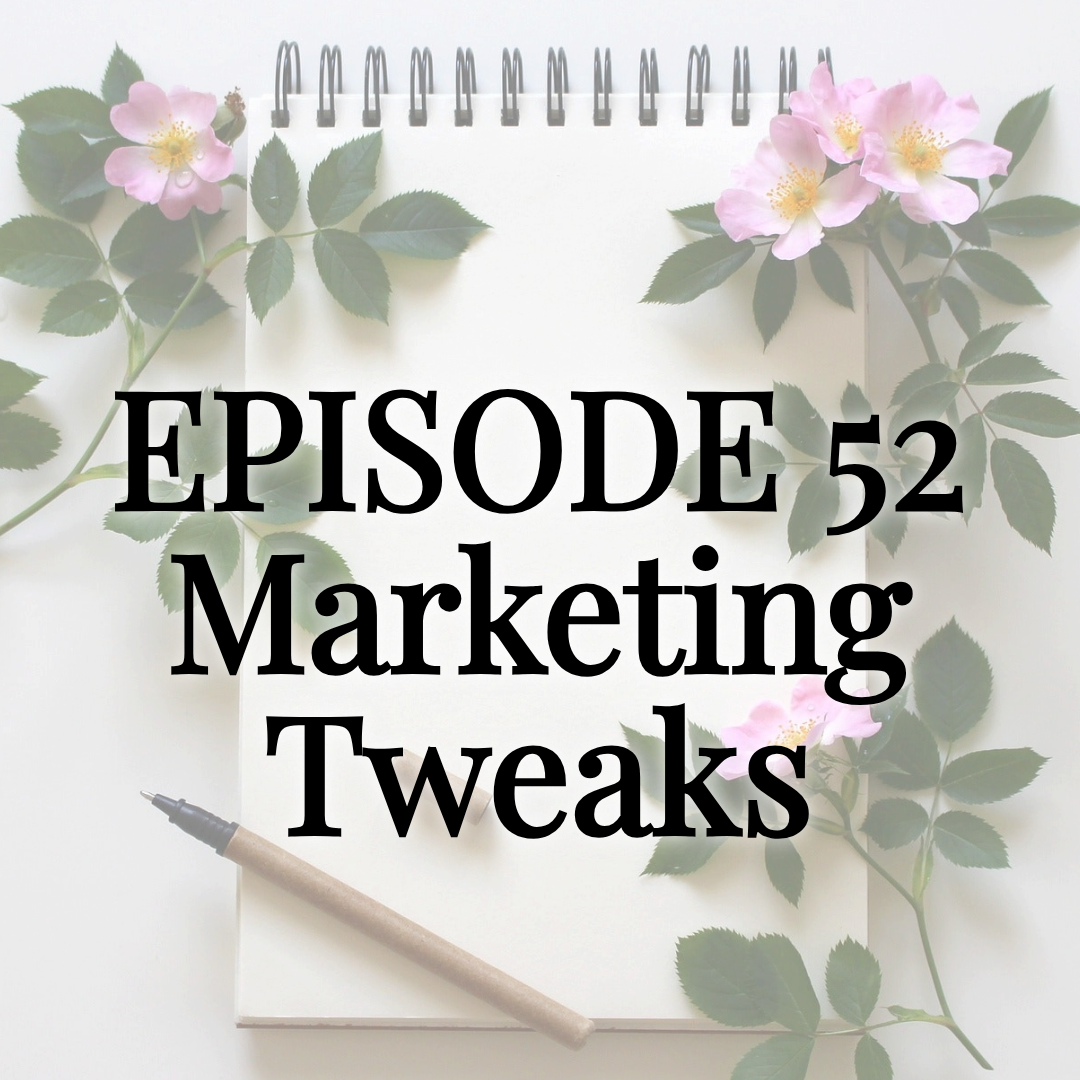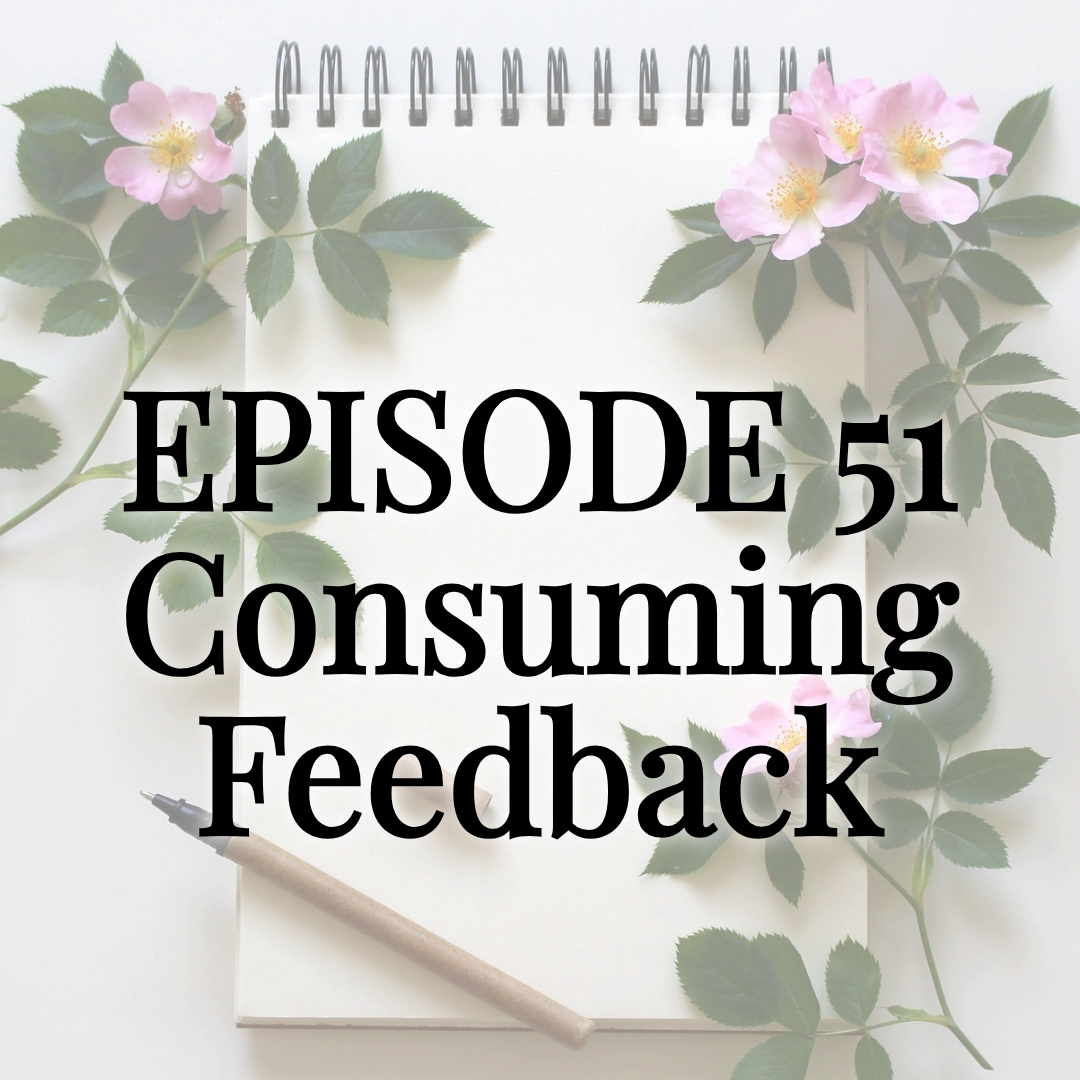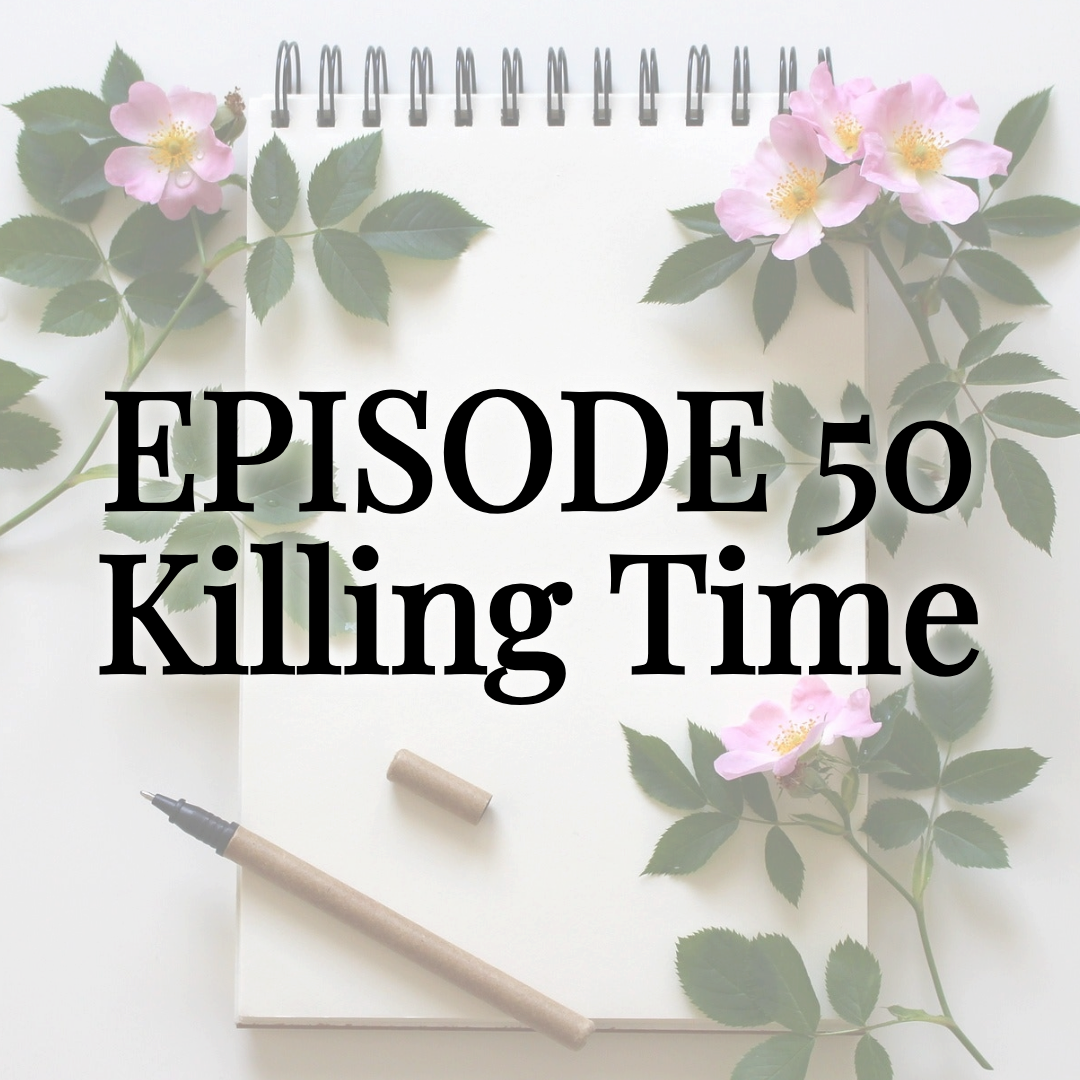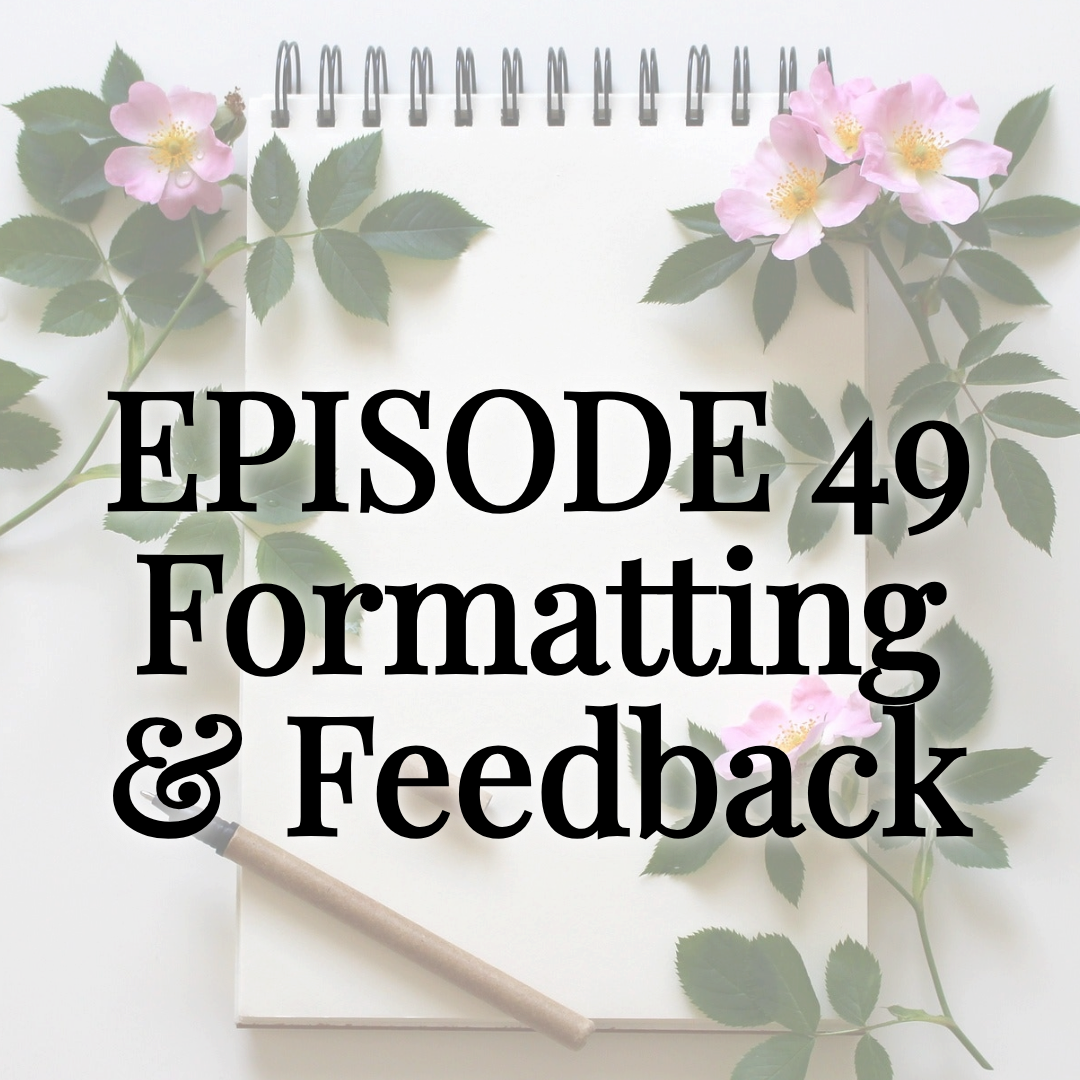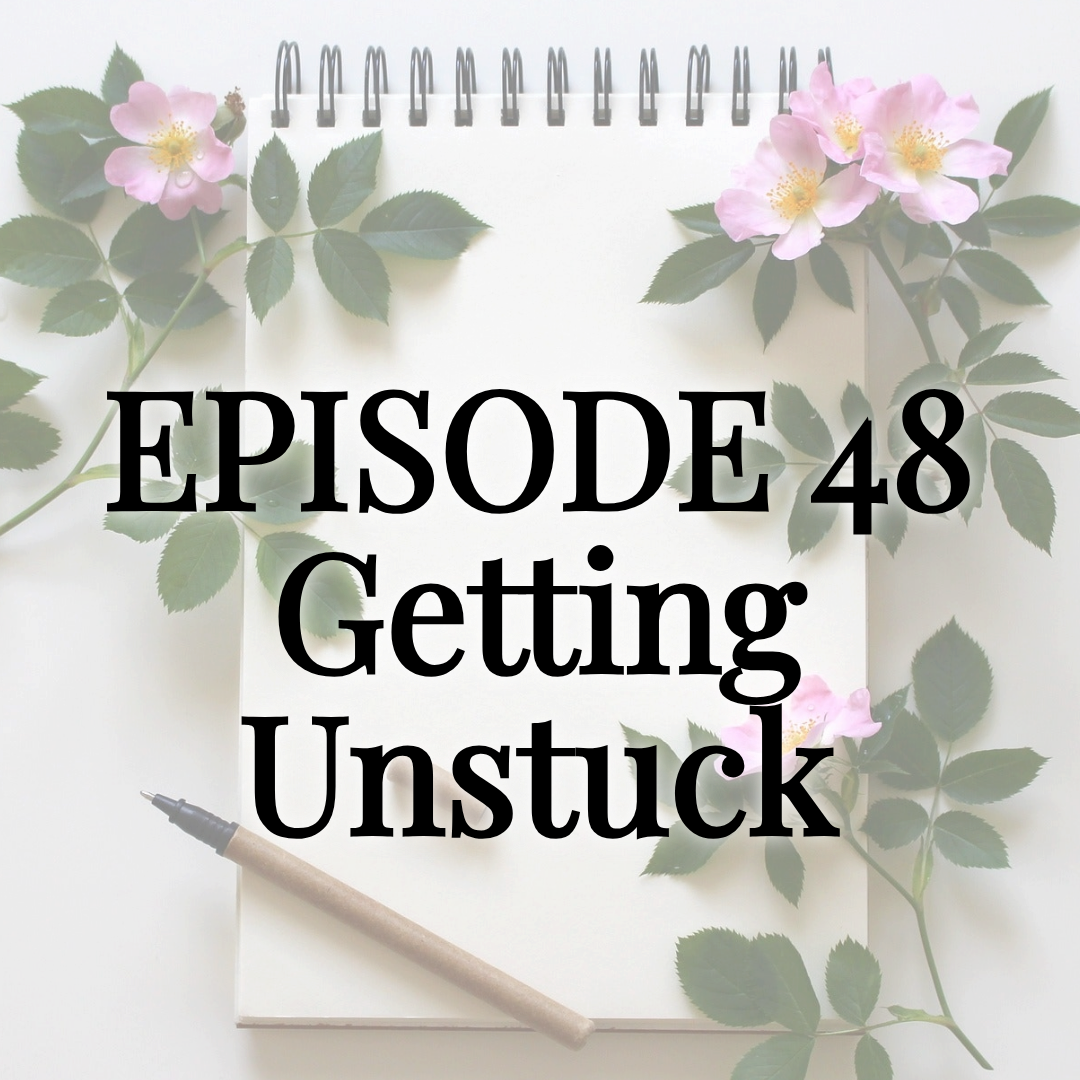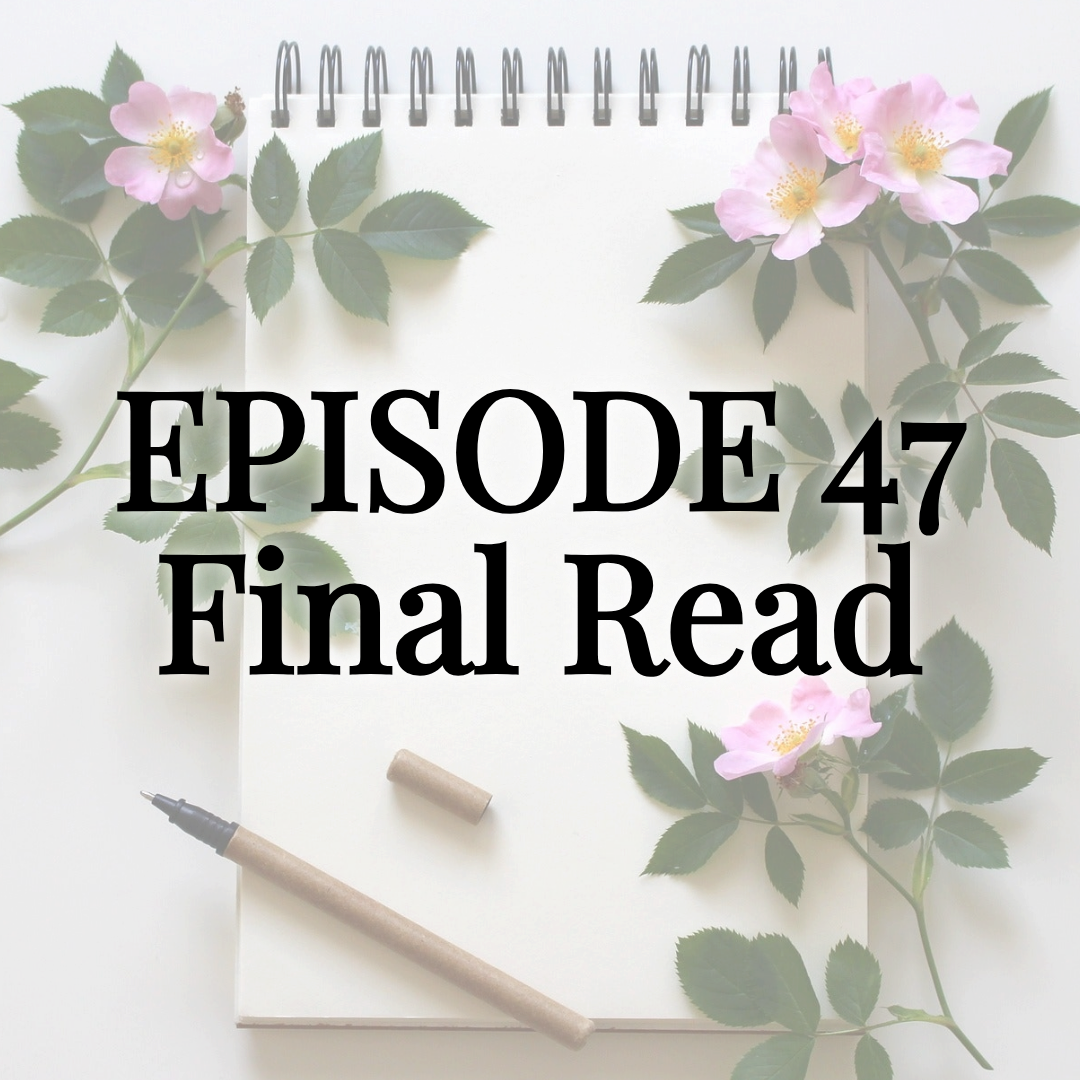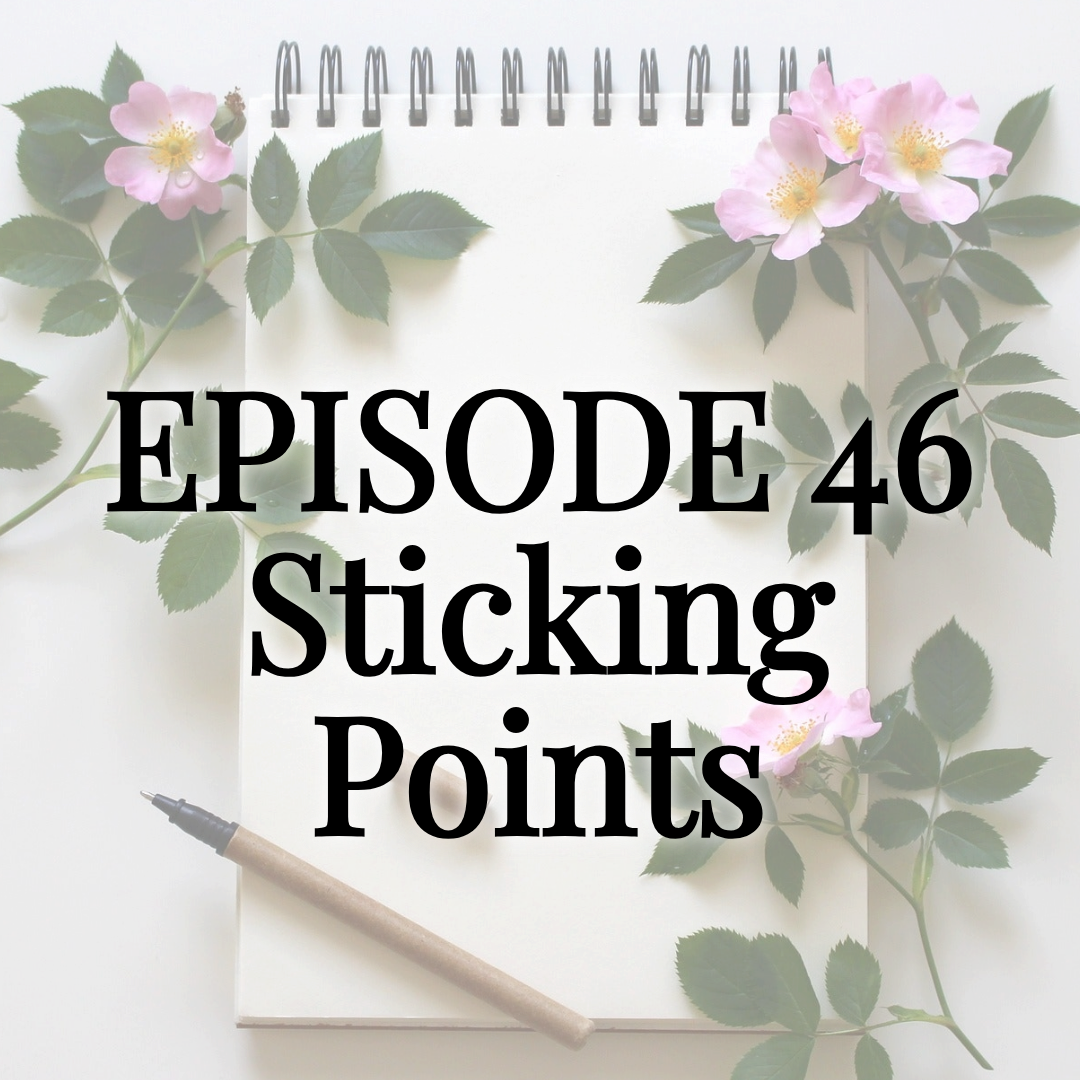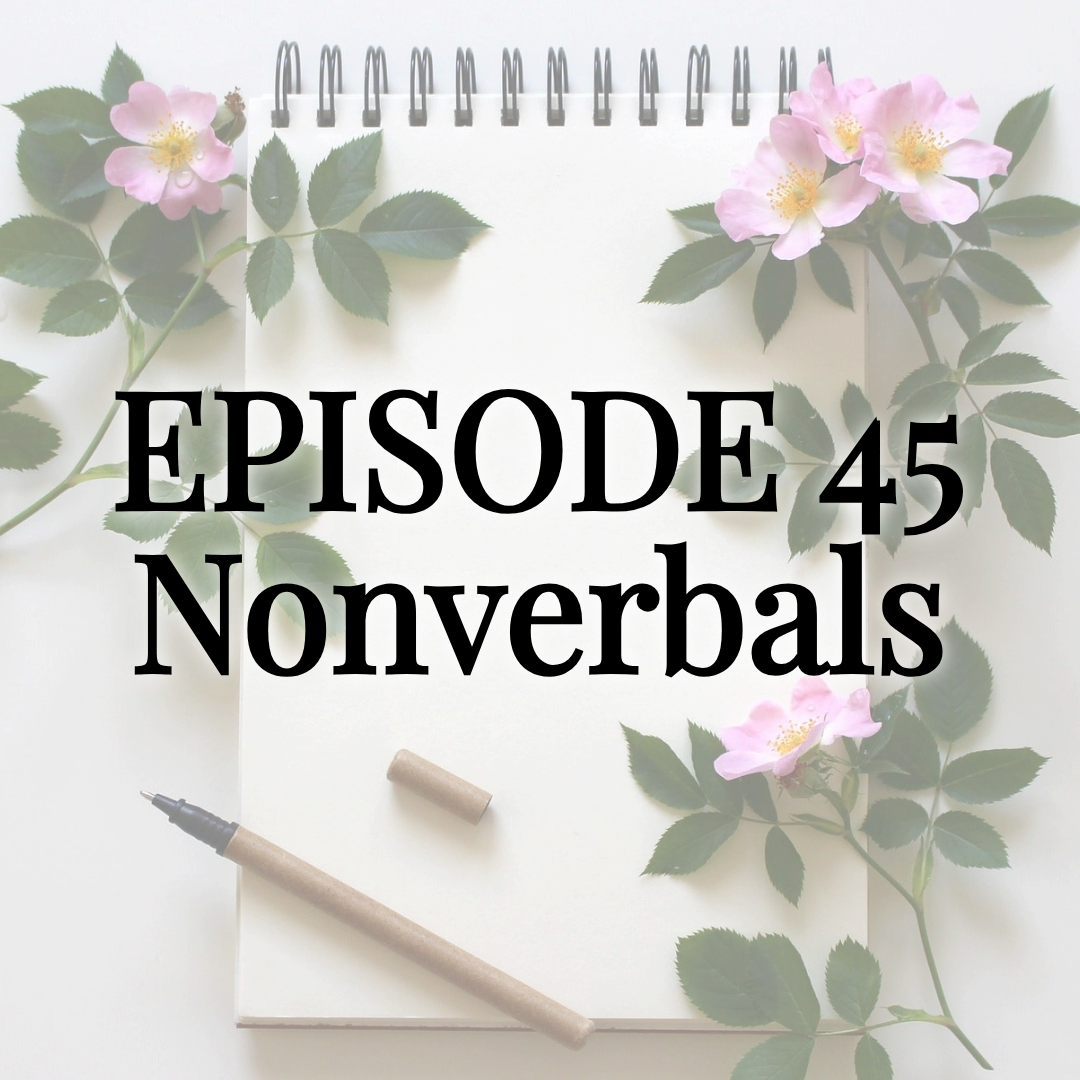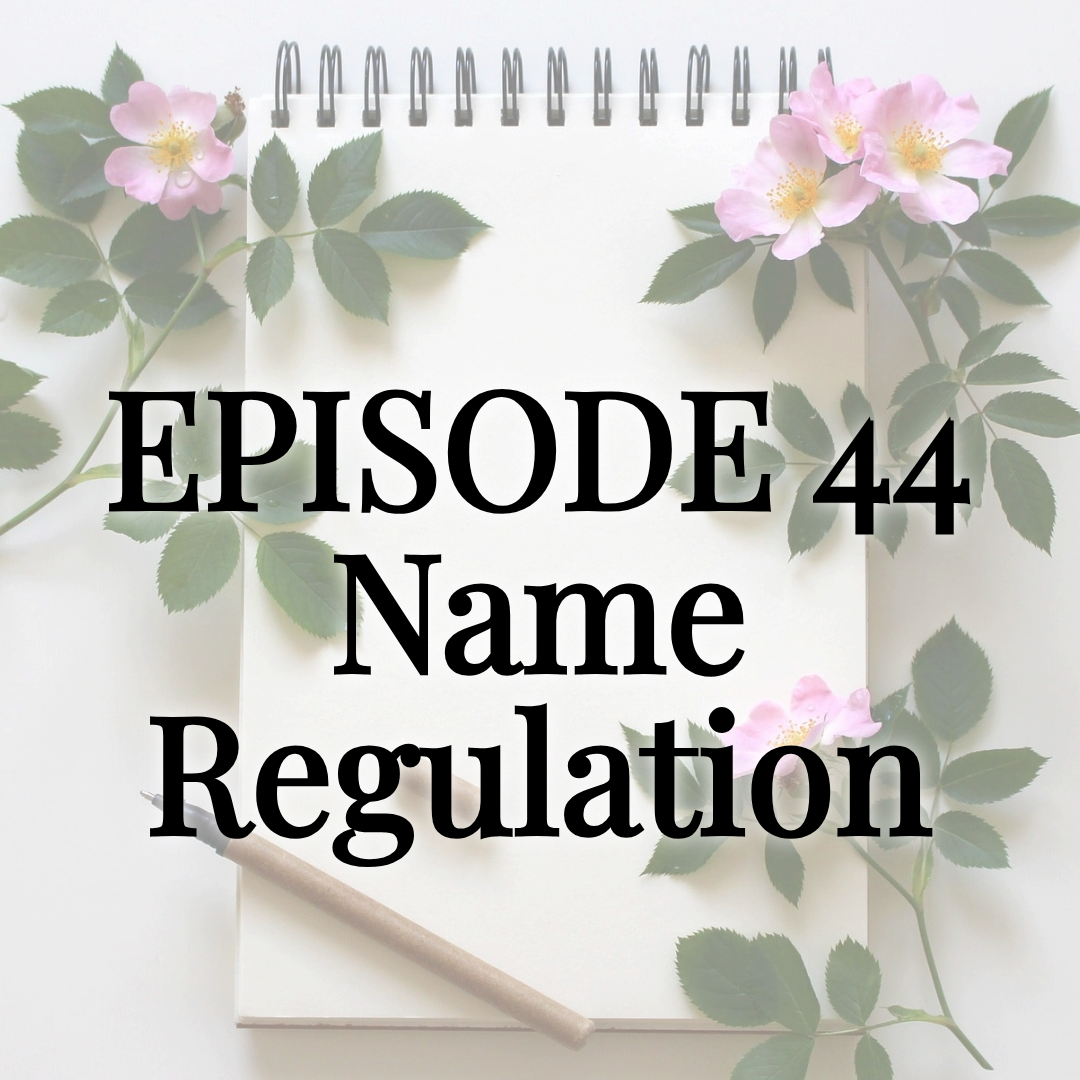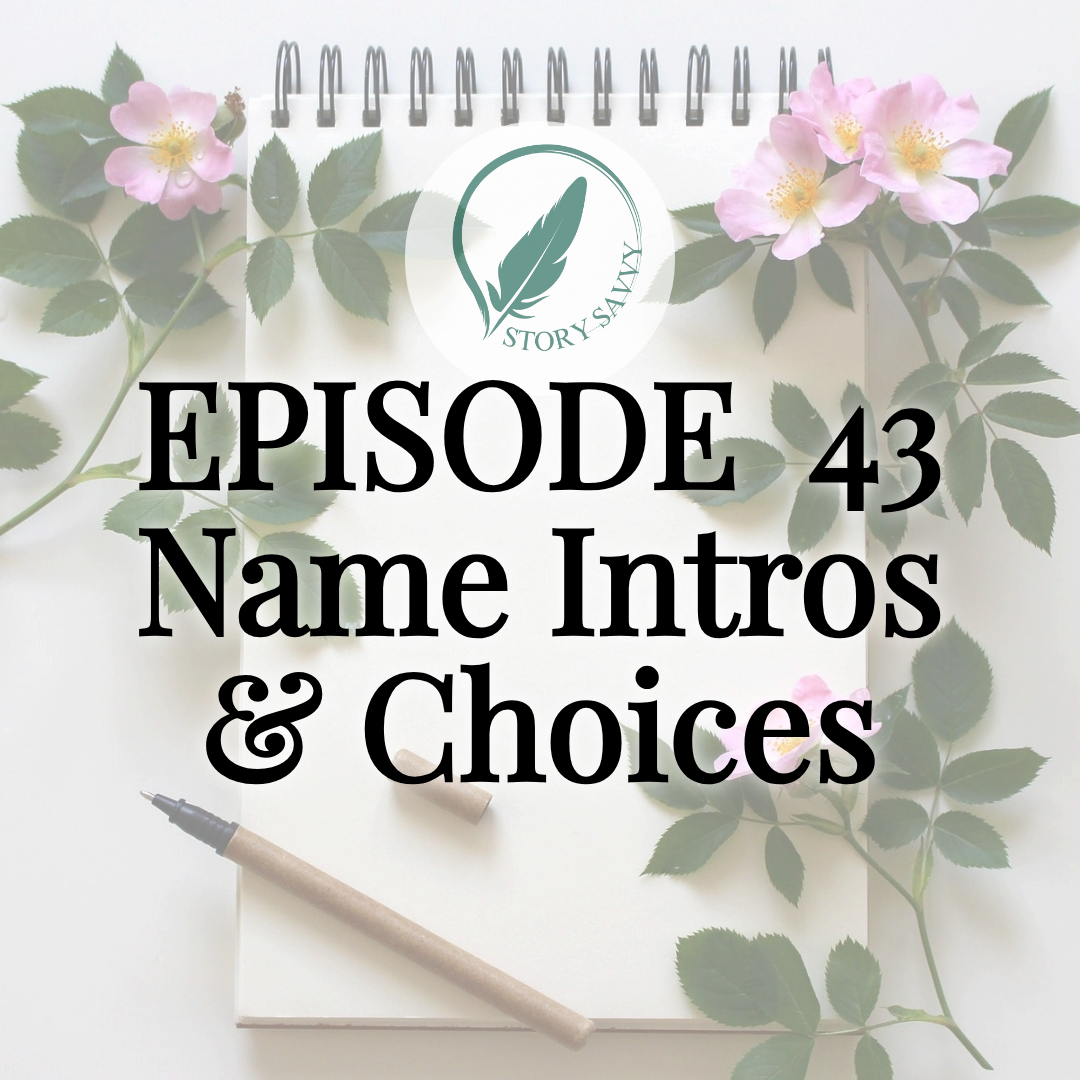Core Scene Events: Story Savvy Self-Editing Episode 30
Core Scene Events: After-episode thoughts, overview, and transcript...

A point of clarity: "...and the location of that core event within the chapter feels balanced." I failed to mention where this is within a scene when recording the episode. It is typically between 1/3 mark and near-end of a chapter, though more ideally in the third quadrant, so between the 1/2 point and 3/4 of the scene/chapter. If you are intentionally using cliffhanger chapter breaks, then I would still suggest using this rule of thumb per scene (all of the events surrounding a core event, ignoring your arbitrary chapter division choices.
The other episodes referenced in this one are:
Episode 7: Beginning, Middle, & End
Episode 18: Appropriate Intensity
Episode 25: Subplots & Plot Threads
Happy editing!
Episode 30 Overview:
Core Scene Events
“Does every scene or chapter have a core memorable event? Is it interesting, accurate, and unique within the book? Does it move the story forward, and impact the overarching plot?”
Need help defining what anchors a scene? In this podcast for fantasy authors we cover that and more as we discuss core scene events!
In episode 30 of the Story Savvy Self-Editing series, we tackle the single most important topic in this whole series: Core Scene Events.
In this episode, you’ll learn:
- Other terms for core events
- How to check every scene for a strong core event
- How to fix a scene that lacks a strong core event
Chapters:
0:00 Introductions
1:45 Defining Scene Core Events
1:20 Why They Are Important And The Downsides Of Missing Them
5:16 Testimony From Agnes About Her Own Book
6:17 Does Every Scene Need A Core Event?
8:13 The Magic Question For Gauging Scene Core Events
11:30 Red Flags To Watch For In Your Work
13:39 Cutting, Editing, Or Combining Dud Scenes
18:06 Which Core Event Is Right For A Scene
20:26 Connecting Scene Core Events To Theme
20:58 How Does Point Of View Affect Core Scene Events
23:32 Wrap-Up
Recommended Resources:
- Need a Developmental Editor? www.hartboundediting.com
- Author’s Alcove Membership: www.authorsalcove.com
- Fantasy Book Giveaway: www.authorsalcove.org
See you next for Episode 31: Avoiding Scene Stagnation
Episode 30 Transcript:
Scene Core Events
Rebecca Hartwell: Hello and welcome to the Hart Bound Editing podcast. This is episode 30 of the weekly story savvy series where we tackle the 52 biggest self-editing topics and tips to help you make your good story great, as an aspiring author asks me, a developmental editor, all of the questions that you have wanted to.
Last week we finished out the second module of the series by talking about character consistency, depth, and uniqueness.
Today, we are going to start the scene-level module by talking about the all-important scene-core event. I very much feel this is one of the most important topics in this whole series, so I hope you are all paying attention. By the end of this episode you will all hopefully feel confident naming the core event for every scene, spotting anywhere you might need to add one, and checking that they all make your scenes mean something to the overall story.
Joining me to ask all of the questions is my good friend and co-host Agnes Wolfe. Welcome!
Agnes Wolfe: Hi, I am the aspiring fantasy author who is hoping to release her middle-grade fantasy novel later next year. And I am also the host and founder of Author’s Alcove.
I am here today to tackle this topic of making sure every scene has an anchor event and purpose.
I often like to start out just by defining what we are talking about so that we know that the two of us and our listeners are on the same page. How would you define a scene-core event?
Rebecca: Sometimes this could be called an anchor event, a change event, the turning point of a scene, the heart of a scene, the point of the scene, anything like that. So, if you are familiar with any of those concepts, that’s what we are talking about, and if you are not that’s fine, just understand if you go looking into this topic you might find it under those names.
The main question here is, “what makes the scene memorable”? The core event is essentially what the reader will remember about the scene after the fact. Be that by the end of the book, later in the series, or years after they’ve read it.
It is the one page, or the one paragraph, of the scene that the story could not possibly move forward without. It is the core revelation, or actions, sometimes a choice that leads to one of those two, or change in a scene, which means that something is different from the beginning of the chapter to the end, or from the end of the chapter before to the beginning of the next. The core scene event is all of those things.
Agnes: One of the most important things that I think has really helped me in my own writing when I’m thinking about the core event of each scene, is you asked me to ask myself “what is the, like…”, to finish the sentence, “this is the chapter that this happens,” and so I ask myself “what is it that this happens in this particular chapter?” And so, when I ask myself that question, what's interesting is I realize when I have not done a good job.
And so, I am going to ask you, first off, why is having a core event important, and what are the downsides if we do not have a strong enough core event in a scene?
Rebecca: Boredom, first and foremost. If a scene lacks a core event, the reader is likely to reach the end and wonder why you wasted their precious time with it.
The most common issue that I see as a developmental editor, right across the board—all genres, all authors—is that they will have a scene or scenes that don't actually move things forward, because it lacks a core event. This is sometimes because they are trying to wrap things up from previous scenes or transitions into the next, because they want to do more character development all by itself, or because they just had an idea for a scene and wanted to include but it didn't hinge on anything particularly meaningful. All of these things are fine and great to include but not without a point, a plot point, anchoring them. Momentum is vital. And having a core scene event in every single scene, every single chapter, is one of the most important ways to keep it going and keep the momentum engaging to your reader.
Agnes: What I found interesting when I was editing my book is there were several chapters that you had pointed out that I needed to either strengthen the core scene event or I needed to actually add one or just scrap the scene all together. And so, when I was doing my most recent one that I was doing, I realized that all I really needed to do was add like a paragraph, and it, because, like, I knew what I wanted to happen in it and then I realized, “Oh! This actually strengthens my character”. It made my character less flat. Which was amazing. And it also, like, made that scene have purpose, which I was absolutely in love with, that you had recommended doing one of those things with. (laughing)
Rebecca: Excellent.
Agnes: But when I did read it again, I was like, “Yes, that really improved that particular scene”, and it actually improved my character, too. It took care of two things, and I don’t even think it was a full paragraph, it was just a few sentences in the middle, and then I added another sentence at the very end, and I was like, “Oh! I made it better”!
So, does every scene need one [core event], or is it okay to have our character deep in thought and reflecting on their life in some scenes? Things like that. Is that okay?
Rebecca: I personally feel that every single chapter or scene needs a core event, but the intensity expectations for those core events will vary wildly by genre.
In the lightest, tamest genres, the core event expectations are along the lines of someone getting picked as the diamond of the season dashing everyone else’s hopes, or a friend betrays the protagonist socially, or the protagonist hears of a scandal in their community that makes them move forward with more caution, things like that.
In the more intense genres, the core events need to match that. Those core events might look more like near death experiences or learning secrets that change who the protagonist thinks are the bad guys or the villains. Or it could be getting chased and imprisoned, losing a friend permanently, things like that.
But both of these are averages. Not all scene core events need to be really intense in the really intense genres, or necessarily super light in the light ones. But like I talked about in the episode about appropriate intensity, for scene core events in any genre you want to stay within your spectrum for all of your scene core events but have variety within your spectrum. So, for intense you need to be within the intense spectrum, but you want to use that whole space. And same thing for less intense.
Agnes: So, what would be, like… I know I’ve already mentioned what you said, but I would love you to say your words because how you worded it was so amazing and I could not get it out of me for the life of me, but would be a good question or tool to help us gage whether our scene has a main event?
Rebecca: It is very much the question that you mentioned earlier. For every single scene in your book, and ideally in probably no more than twenty words (the shorter the better) write out the sentence, “This is the scene where ___”.
If I could convince every single listener, every writer to do one exercise from this whole series I would like it to be this one. Check that you can write out that statement; “This is the scene where ___”, for every single chapter, and or scene, and make sure that the statement is accurate, interesting, and unique within your book.
If you write out, for example, “This is the scene where Susan learns her husband is sabotaging her”, but she’s only really finding the first clue and not yet connecting the dots, then it's inaccurate and you need to try filling out that statement again.
If, then, you make the statement, “this is the scene where Susan finds, but ignores, her husband’s journal”, then that’s too boring of a statement to be a strong core event, as readers won't know the future significance of that journal because she doesn't yet know the significance of that journal. And you need to try again, likely by going into that chapter in your manuscript and trying to add or strengthen—like you talked about earlier—a core event for that scene.
So then, you go in, you edit the scene and you get back to this is the scene where, “This is the scene where Susan learns her husband is sabotaging her”, but you still have her having the same realization in a later scene which was originally the “first and only time” that she had this full realization where she connected all the dots, and in that case this statement isn't unique within this book and you need to go change one of those scenes, or both I suppose, so they all have different, accurate, and interesting core statements.
10; 43 Agnes: So, you know, you expounded on something that… so you asked that question but then you expounded on something that really is going to help me, and having to actually write out the scene and making sure it does not align with other ones, because immediately when you said that I was thinking, “Oh wait, I think I may have done the same thing in two different ones”, but I didn’t… you know, they are very, very different, but like I think if I said what my core event was, I think they would be too similar. So that’s something I think is really going to strengthen my story when I go back through with it, I’m going to have to really look at. So, thank you so much for there. And so like, I know that’s a question I have asked with each of the scenes, especially the ones that you have pointed, but I have been trying to ask myself anyway, even with ones that you have not mentioned it.
But I do want to ask, kinda expound on that question or statement, are there red flags that we should look for so we can spot these before we have a developmental editor?
Rebecca: Yea, that tool question of, “this is the scene where ___" is the best tool that I can offer for this, but you can also try checking your cause-and-effect chain.
In each chapter, name one big-ish (depends on your genre) thing that was caused by the scene before, and one big-ish thing that causes the next chapter to start how it does. This can be the same moment. So, the, let’s say, chapter five can cause this one event in chapter six that also happens to cause chapter seven. The importance is that there is movement in and out of that scene in that cause-and-effect kind of chain. If you don’t have that, it's likely a dud scene that you need to address around your core events.
Another way to check this is to make a list of every single scene in the book, and then mark off, or highlight, color code, the first five scenes that you can think of with the biggest emotions, events, changes, or the like where you are absolutely certain there is a strong, memorable, and unique core event. Then, do the same thing to the next five that you are the next most certain about. When you’re down to only about five left unmarked, those are the ones that you are less certain about, that you are the least certain about, go ahead and go and look at those only. Would it be accurate to say those scenes are only there as wrap-up for what came before, or transition into what comes next? If that statement is accurate for any of the scenes, it's probably a dud scene and you should address adding or strengthening a core event for it.
Agnes: So if we do actually have a scene that is pretty flat, do you recommend cutting, editing, or probably, my favorite, combining, especially if you are absolutely in love with a flat scene, (laughs) combining it with another scene to make it stronger. How would you recommend/suggesting fixing it and which way, and how do we know which one we want to do?
Rebecca: It depends on the specific situation to some extent, and the temperament and skill and biases of the author. You are absolutely correct that sometimes it can be very, very hard because you are attached to whatever reason you had to include the scene initially.
There are basically three ways to fix a scene that’s lacking a core event, and you just touched on all three, so I am glad I apparently explained the options well when I did your edit.
Adding a core event is the first option. Just brainstorm what moment or action, or step taken, secret reveal, choice made and acted upon (you know, at least one solid step. It doesn't have to be all of the way from the decision), what change of plan or reason from that, or anything like that you could possibly add to the scene to anchor it. Pick a favorite and add it. Or, you can take a look at what you already have in a scene, which you mentioned earlier in your own work, and look at what could act as a strong anchor if you just increase the stakes, the emotions, or anything like that around it to bring it up in strength and memorability.
Scrapping the scene is the second option, but for a lot of authors, including myself sometimes, we feel a lot of emotional resistance to scrapping that scene, like you mentioned with that attachment to it. If you want to try that option, I suggest a few things to make it easier and more effective for you. First, read the scene and make sure that there aren't any vital details, hints, foreshadowing, things like that, that you want to snag one sentence or one paragraph at a time and put it elsewhere first, because that still needs to be part of the story. And then, don’t delete the scene necessarily. Move it to a scrapped document—which I believe I mentioned in this series before—that you keep for that book. Copy it out of the manuscript, paste it into the ‘scrapped’ document, and then save both with backups, because none of us like losing our work. That way, if you change your mind or think of a necessary line that you need to bring back into the book somewhere it’s really easy, you can trust that it’s right there. You aren't deleting your hard work, you're just moving it off to the side.
And then lastly, combining scenes to give a chapter a stronger core event is the trickiest option. First of all, make sure that this doesn't make your new chapter too long. Go back to episode 21 on word count if you need to on this topic. Second, within the suggestion [for how long chapters should be], chapters are basically separated between major events. A chapter encapsulates, or compartmentalized, one major event. So, when you combine two, it can feel like you missed a chapter break that was “supposed” to happen, even to casual readers. And then the third, sort of caveat or warning here is that when you do this in the name of anchoring both of these scenes on one core event, it can make either the build up to that core event, or the resolution after it, feel way too long. So, if you decide to combine, if you decide to go with this third option, I suggest that you then try to edit it down to an ideal length, rework things to avoid having any jump forwards in time or location, and that you shift things around as needed, so that the set up and the payoff of the core event feel reasonable, and the location of that core event within the chapter feels balanced.
Agnes: So, let's say we do have a core event, like I just mentioned that I had those two scenes. They both have a core event, but I realized they’re the same core event for one thing. How can we make sure that it's the right core event and that that scene is impactful to the overall story? Because obviously that's a question I'm going to have to ask as I decide which one is the one that actually is that true core event.
Rebecca: Yes, you can start by looking at your global story structure, which we touched on very early in this series, and see where in the full picture of things that moment makes the most sense to land.
So, if this is a midpoint shift kind of moment, as your core event, it makes more sense to put that in the middle, than it does in chapter two or two from the end. That can help make that decision.
I would also say that checking that cause and effect chain is a very likely helpful tool for this. If the core of an event in any given scene is unrelated to the last core event or unrelated to the next core event, it might not be the right choice to be right there.
However, unless you're looking at differentiating things, like you are, I don't suggest stressing about whether or not a core event is the “right one” for a given scene. Whether or not it is impactful, on the other hand, is absolutely something to pay attention to. In my experience, if a core event is strong enough to meet the “this is the scene where ___” test, it’s almost always impacting the overall story adequately.
In the rare exceptions where it still isn't meeting that requirement or it meets that requirement, but it isn't actually impacting things, it's often because of more of a case of it affecting the wrong plot. So, affecting a subplot that is too separate from the main plot. In which case, I refer everyone back to Episode 25 on that topic so that you can address the actual issue and not a symptom of it.
Agnes: So, should every core event tie into the story’s central theme or conflict?
Rebecca: It can, but I would hardly consider that a requirement. The core event is really just the what of what happens in a scene, while the theme is more likely the why the thing happens and the conflict might be the why, it might be the how, it might be the what of what happens. It really depends.
Agnes: So, I know we are running out of time, so I do want to wrap up here. I do have one last question. I know one of the things that affected several of my scenes around whether the core event came across as strong enough was my point of view choice. How does point of view affect scene strength or anchor effect strength?
Rebecca: It has a huge effect, because whoever is the POV character in a given scene needs to own the agency of the core event. It's just one of those things that will feel really off to readers if you get it wrong. This is because who the protagonist is, is signaled to the reader by who uses the most agency in a scene. And the POV character should almost always be the protagonist in a given scene. The protagonist is (or should be) the most invested, the character with the most at stake, and the character with the most complex emotional response to explore. Not to mention the character you want the reader most invested in. And being in their head for the moments that are biggest to them is how you achieve that.
So, if you have a scene where the scene core event is chosen, learned, or done by the POV character, you're fine. If you have a scene where the core event is chosen, done, or learned by someone other than the POV character, then you essentially have two options for addressing it. Option one is, that you change that POV of the scene so that the same person owns the agency of the core event as you originally had it, but it is now seen through their eyes, through their point of view. Option two here, is that you change who chooses, learns, and/or does that core event to make it the person who’s POV you have been in the entire time. If you get this right, it will flow more smoothly and work in favor better for your overall story. When you get it wrong, it can make the core event a lot harder to identify and muddy the waters of the story and the reader's perception of it significantly.
Agnes: Thank you very much for that. That was one of the strongest things that you had said in our development to edit, that kind of—I had never really thought of it in those terms, so I appreciate that.
Rebecca: Good! Yeah, next week we will keep going on this sort of scene-level check, where these are all topics to go through your book, and at every single scene give it a little moment of, “Am I hitting this? Am I doing this? Do I need to fix this?” And, next week’s episode will be on the topic of avoiding scene stagnation and making sure everyone has some very tangible tools for keeping things interesting at that level.
For now, I want to thank everyone who has listened and followed along with this series. We would appreciate it if you would help up by following and liking the Hart Bound Editing podcast, and the Authors Alcove Podcast. And you can find lots more content of fantasy authors and readers beyond this joint series in both places.
Agnes: And again, thank you so much. Can’t wait to talk ‘til next week!
Rebecca: Thank you so much for listening to the Hart Bound Editing Podcast. I look forward to bringing you more content to help you make your good story great so it can change lives and change your world. Follow along to hear more or visit my website, linked in the description, to learn how I can help you and your story to flourish.
See you next time!

